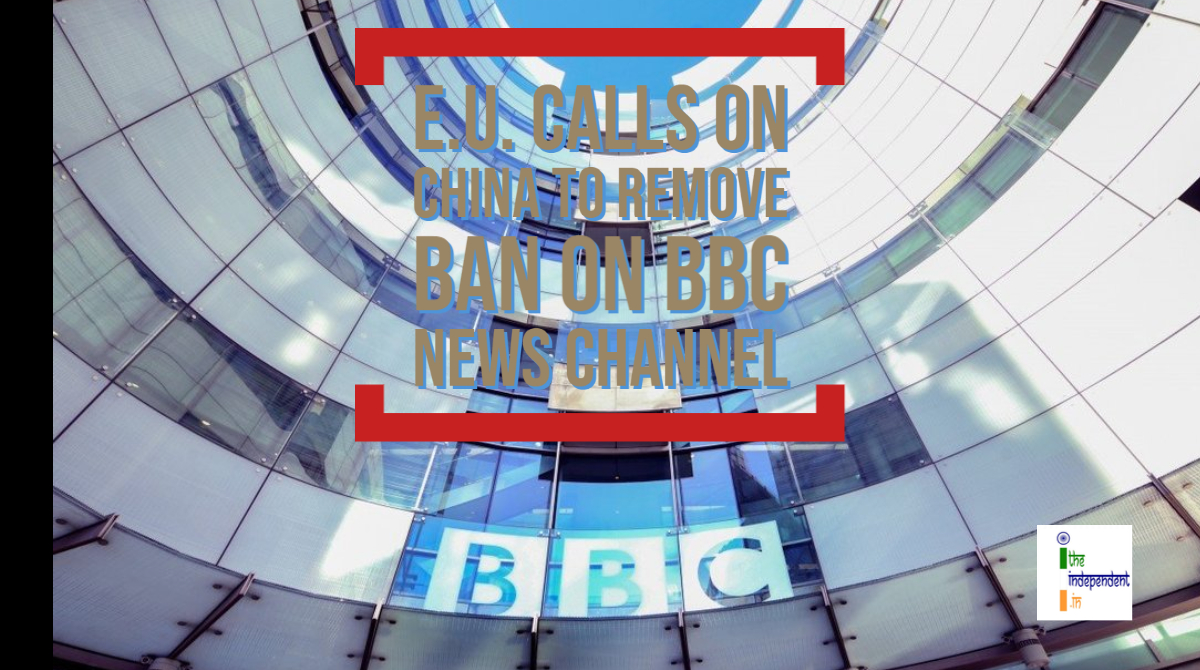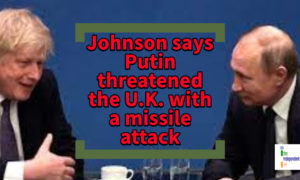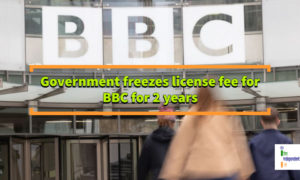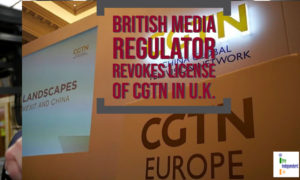
The E.U. said China’s decision to ban BBC restricted freedom of expression and access to information inside its borders
The European Union (E.U.) has called on China to remove the ban on British Broadcasting Corporation (BBC) News Channel which the latter had imposed in retaliation after United Kingdom (U.K) revoked the license of China Global Television Network (CGTN).
The E.U. said China’s decision restricted freedom of expression and access to information inside its borders. It also said that the ban violated both the Chinese Constitution and the Universal Declaration of Human Rights. However, there is no clarity over the employment of BBC reporters in China.
Earlier on February 5, 2021, the Office of Communications (Ofcom), the Government-approved regulatory and competition authority for the broadcasting, telecommunications and postal industries of the U.K. said that Star China Media Limited (SCML), which owns the licence for CGTN, does not have editorial responsibility over the English-language satellite news channel. Ofcom accused SCML of acting as the distributor, rather than the provider of the news channel. It also rejected the proposal by CGTN to transfer the license to a new entity as it would still be controlled by the Chinese Communist Party.
The E.U. also opposed Hong Kong’s move of removing BBC from public broadcaster. It termed the move as erosion of the rights and freedoms that is ongoing in the semi-autonomous Chinese territory since the imposition last year of a sweeping new national security law.
The official statement from E.U. read, “The EU remains strongly committed to safeguarding media freedom and pluralism, as well as protecting the right to freedom of expression online and offline, including freedom to hold opinions and to receive and impart information without interference of any kind.”
While Britain is no longer a member of E.U., it remains a member of the Council of Europe, which oversees a 1989 agreement linking broadcasting licences.
China’s National Radio and Television Administration said BBC World News coverage of the country violated requirements that news reporting be true and impartial, reflecting complaints over BBC reports about the Government’s initial response to the virus outbreak in China.
It accused BBC of showing false news criticising the Chinese Government over the alleged exploitation of upto 2 million Muslim Uyghurs and other minority groups in detention camps at Xinjiang.
Ofcom had previously ruled that CGTN had breached impartiality standards with its coverage of protests in Hong Kong. Ofcom said that CGTN overemphasized the positions of Government authorities in Hong Kong and China without exploring the views or motivations of protesters.
The Ofcom investigation on CGTN also found that CCTV News, which was renamed as CGTN in 2016, violated its rules in broadcasts covering the arrest of corporate investigator Peter Humphrey in China. The broadcasts in 2013 and 2014 included footage of Humphrey appearing to confess to a criminal offense that Ofcom said, “had the potential materially and adversely to affect viewer’s perception of him”, without giving Humphrey enough time to respond.







